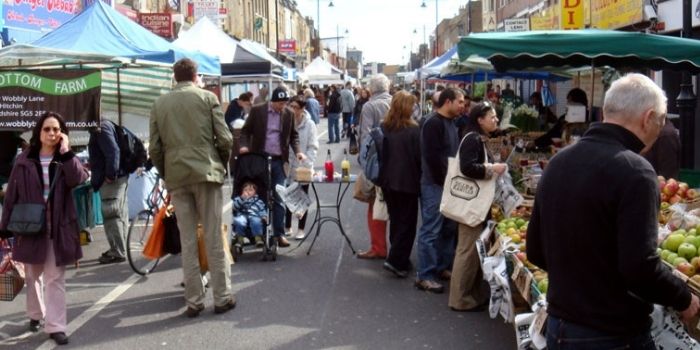How to Keep The London Property Market Moving
A property chain is a term used to describe a group of buyers and sellers buying and selling properties from each other. Each party is linked together in a ‘chain’. The chain has a beginning, a first-time buyer for example, and an end, someone who is selling and is not buying on. The rest of the chain is made up of people who need to both buy and sell.
In theory, there could be any number of links in a given property chain, which can make them problematic at the same time. If one person forgets to return a signed document on time, the whole process could be delayed for everyone. Or even worse, if just one person changes their mind about their purchase or has their mortgage application rejected, the chain breaks down completely.
Your chain can only move at the pace of the slowest party. So what can you do to prevent everything from grinding to a complete standstill?
Firstly, if you have a good estate agent, your chain should be progressed efficiently. However, it only takes one party in the chain to not be efficient in responding to their conveyancer’s requests to slow things down. Unfortunately, some of these matters will be out of your control, but there are some things you can do yourself to help progress your part of the chain.
>Employ a good, experienced estate agent and conveyancer/property solicitor. Ask them how long they have been doing the job for and how busy they are.
>Speak to your agent and conveyance regularly. Ask if there is anything they or you should be doing. Email is great for this; not so intrusive but reminding them to keep you updated.
>Get your finances in place early, especially cash for your deposit at the time of exchange.
>File everything. Keep copies of all correspondence relating to the sale of your property and the purchase of your new property, from all parties.
>Sign, date any paperwork promptly, including copies of your correspondence and notes of telephone conversations.
>Sign and return all of your paperwork promptly. Deliver documents by hand, courier or special delivery.
>Put clauses in your buying and selling contracts stating the dates of exchange, surveys and completion.
>Make clear your expectations, via your agent and conveyancer, on dates. Once a survey has been signed-off, and your mortgage has been approved, you can begin to talk about dates for exchange and completion. In a long chain, getting everyone to move at the same pace is difficult. Those higher up the chain will have agreed their sale/purchase later than you and will be behind you with mortgage applications, surveys, etc.
If you’re already in the middle of a sale or purchase and looking for guidance on what you can do to help keep your chain moving, the only real option you have, other than those mentioned here, is to chase up those who are falling short.
There are things you can do to help get it back on track. Communication is key to property chains keeping intact. Communicate, communicate, communicate. If you’ve chosen a good conveyancer, they’ll be happy to talk to you whenever and however it suits you. The key is to stay well informed and keep communicating, and always make sure to do your bit. Make a point of reviewing your tasks daily. If your ‘to do’ list is empty, call your conveyancer and ask if there’s anything else you could be doing.
No one can predict the future and therefore, although you may come across issues, sometimes it is difficult to foresee them. Just because one of the situations does arise, it doesn’t mean that they can’t be overcome. A lot will come down to making the right choice when selecting your estate agent and conveyancer, but you can also do your bit by being proactive, too.
I hope this helps!
If you’re looking for help in selling your home, I cover Willesden, Cricklewood, Dollis Hill, West Hampstead, Kensal Green, Queens Park and the surrounding areas.




















